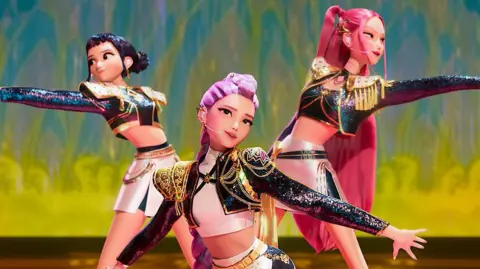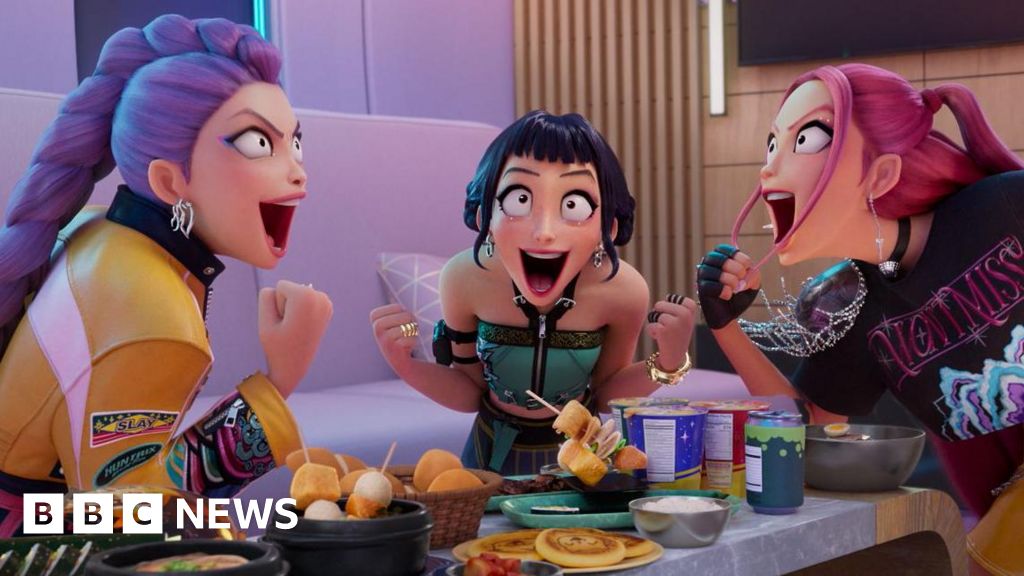In an era where anime has skyrocketed in popularity, the announcement of Netflix's live-action remake of Solo Leveling has ignited mixed reactions among fans. Originally a Korean web novel before its hit anime debut, Solo Leveling tells the compelling story of a lowly monster hunter’s rise to power. However, with past failures in Hollywood adaptations of anime, many fans are apprehensive about the potential outcome.
"Live-action adaptations have often been a letdown," says Andre Denisson, a Swedish fan, voicing a common concern that the CGI in Solo Leveling might fail to replicate the striking visuals and dynamic fight sequences that the original anime is celebrated for. The series, depicting a world where humanity depends on "hunters" battling magical monsters from enigmatic portals, has captivated viewers worldwide and presently holds the record as the most-watched series on Crunchyroll, beating out popular titles like Demon Slayer and One Piece.
Anime fans like Ander Guerrero from Spain believe that live-action interpretations often result in a diluted experience, leading to "half-baked stories" missing critical narrative points. Reinforcing this sentiment, YouTuber Geoff Thew emphasizes that the inherent dramatics and aesthetics in animation do not translate seamlessly to live-action and that iconic moments from the anime must remain recognizable, even amid alterations.
Hollywood's attempts to adapt anime date back to the 1990s, with infamous flops like Dragonball Evolution provoking ridicule, and 2017's Ghost in the Shell receiving backlash for its casting decisions and financial underperformance. However, studios remain undeterred, with notable projects underway, including a Gundam film and a Naruto adaptation, signaling a steadfast resolve to discover a successful formula.
The compelling value of the global anime market, estimated to exceed $60 billion by 2030, may explain studios' ongoing commitment to live-action remakes. Data indicates that over half of Netflix's 300 million subscribers regularly engage with anime, affirming its rising traction.
For many, such as UK-based fan Parisa Haghighat, the perception of anime is evolving from a niche interest to a mainstream phenomenon, especially in light of changing viewing habits during the pandemic. Dentsu's research reflects this trend, revealing that many viewers turn to anime for a refreshing alternative to Hollywood's repetitive storytelling.
So why do studios continue pursuing live-action adaptations when original anime thrives? Industry analysts suggest that platforms like Netflix see them as a potential differentiator in an expanding market, possibly leading viewers back to the original anime after watching a remake, enhancing viewer engagement.
As Netflix navigates its approach to expanding its live-action roster post its 2017 Death Note adaptation, where fans critiqued its authenticity, the success of its recent adaptation of One Piece demonstrates a willingness to learn. For Solo Leveling, the involvement of a Korean cast and crew may help preserve the storyline's cultural nuances, with fans like Archie Moyo recognizing the positive impact that live-action iterations can have in broadening the series' audience. "I'm excited about the live-action because it will introduce a lot more people to the Solo Leveling world," he shares.
The question remains, will Solo Leveling's live-action version measure up to the expectations set by its animated predecessor? Only time will tell if studios can translate the vibrant and imaginative world of anime into the live-action medium without losing its essence.
"Live-action adaptations have often been a letdown," says Andre Denisson, a Swedish fan, voicing a common concern that the CGI in Solo Leveling might fail to replicate the striking visuals and dynamic fight sequences that the original anime is celebrated for. The series, depicting a world where humanity depends on "hunters" battling magical monsters from enigmatic portals, has captivated viewers worldwide and presently holds the record as the most-watched series on Crunchyroll, beating out popular titles like Demon Slayer and One Piece.
Anime fans like Ander Guerrero from Spain believe that live-action interpretations often result in a diluted experience, leading to "half-baked stories" missing critical narrative points. Reinforcing this sentiment, YouTuber Geoff Thew emphasizes that the inherent dramatics and aesthetics in animation do not translate seamlessly to live-action and that iconic moments from the anime must remain recognizable, even amid alterations.
Hollywood's attempts to adapt anime date back to the 1990s, with infamous flops like Dragonball Evolution provoking ridicule, and 2017's Ghost in the Shell receiving backlash for its casting decisions and financial underperformance. However, studios remain undeterred, with notable projects underway, including a Gundam film and a Naruto adaptation, signaling a steadfast resolve to discover a successful formula.
The compelling value of the global anime market, estimated to exceed $60 billion by 2030, may explain studios' ongoing commitment to live-action remakes. Data indicates that over half of Netflix's 300 million subscribers regularly engage with anime, affirming its rising traction.
For many, such as UK-based fan Parisa Haghighat, the perception of anime is evolving from a niche interest to a mainstream phenomenon, especially in light of changing viewing habits during the pandemic. Dentsu's research reflects this trend, revealing that many viewers turn to anime for a refreshing alternative to Hollywood's repetitive storytelling.
So why do studios continue pursuing live-action adaptations when original anime thrives? Industry analysts suggest that platforms like Netflix see them as a potential differentiator in an expanding market, possibly leading viewers back to the original anime after watching a remake, enhancing viewer engagement.
As Netflix navigates its approach to expanding its live-action roster post its 2017 Death Note adaptation, where fans critiqued its authenticity, the success of its recent adaptation of One Piece demonstrates a willingness to learn. For Solo Leveling, the involvement of a Korean cast and crew may help preserve the storyline's cultural nuances, with fans like Archie Moyo recognizing the positive impact that live-action iterations can have in broadening the series' audience. "I'm excited about the live-action because it will introduce a lot more people to the Solo Leveling world," he shares.
The question remains, will Solo Leveling's live-action version measure up to the expectations set by its animated predecessor? Only time will tell if studios can translate the vibrant and imaginative world of anime into the live-action medium without losing its essence.





















